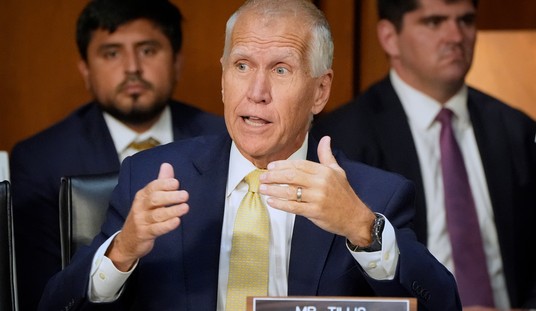Shortly after submission of my previous post, several more relevant articles appeared. Here Candidate Obama’s interpretation of his 2008 message on signing statements was explained. As I understand it, it means that President Obama will issue signing statements only concerning legislation he doesn’t like, not legislation Former President Bush doesn’t like.
“While it is legitimate for a president to issue a signing statement to clarify his understanding of ambiguous provisions of statutes and to explain his view of how he intends to faithfully execute the law, it is a clear abuse of power to use such statements as a license to evade laws that the president does not like or as an end-run around provisions designed to foster accountability,” Obama told the Globe.
This report notes that Rep. Steve Scalise (R-La.), “the chief sponsor of the effort to defund administration-appointed advisers known as ‘czars,’ . . . reacted angrily” to the signing statement.
The President does not have the option of choosing which laws he will follow and which he will ignore.
The president knew that the czar amendment was part of the overall budget deal he agreed to, and if he cannot be trusted to keep his word on this, then how can he be trusted as we negotiate on larger issues like federal spending and the economy.
A bipartisan coalition in Congress agreed that President Obama was circumventing the constitution by appointing these czars without the scrutiny of Senate confirmation. The United States is not a kingdom run by a political dictator, and President Obama needs to quickly reverse course and abide by the law eliminating the czars that were part of the budget resolution agreed to by Speaker Boehner, Senator Reid, and President Obama himself.
Let the games begin continue. Actually, they seem to have begun already, with the Republicans showing some spunk: yesterday,
The party turned to the 2012 budget blueprint and won a near-unanimous endorsement from rank-and-file Republican on a proposal to slash nearly $6 trillion over the next decade. All but four GOP lawmakers backed the plan, with just one member of the feisty freshman class, Rep. David McKinley (W.Va.), opposed . . . . (Every Democrat opposed the bill.)
[Majority Whip Kevin McCarthy (R-Calif.)] credited the success [of the 2012 budget bill in the House] to an inclusive process, saying the budget was the first bill of the new Republican majority in which leaders were able to listen to members and incorporate their views. From the outset of the 112th Congress, McCarthy and Ryan held budget tutorials with groups of freshmen to acquaint them with the process and solicit their opinions.
When the bill came to the floor, the result wasn’t a surprise to the leadership, who predicted Friday morning that the budget would earn “a resounding vote” of support.
“We’ve been working on this the last two and a half months,” said. “If you prepare ahead of time, you’re in a better position.”
The California congressman contrasted the process of crafting the budget with the more difficult sell of the 2011 spending agreement. While GOP leaders won praise for holding an open amendment process during initial passage of the House bill in February, the final deal was hashed out behind closed doors between Boehner, Obama, Senate Majority Leader Harry Reid (D-Nev.) and their deputies. Republicans barely adhered to a three-day waiting period for bills to come for a vote, and a report from the Congressional Budget Office caused confusion about the bill’s actual impact on the deficit.
The party rank-and-file had a better understanding of the budget blueprint, McCarthy said.
“Here members all had input from the very beginning,” he said.
We probably won’t have to wait for the 4th of July for some fireworks.









Join the conversation as a VIP Member